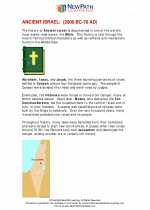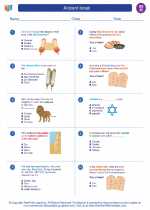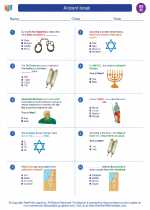Yom Kippur
Yom Kippur, also known as the Day of Atonement, is the holiest day in the Jewish calendar. It falls on the 10th day of the Hebrew month of Tishrei and is a day of fasting, prayer, and repentance. Yom Kippur is a time for introspection and seeking forgiveness for sins committed during the past year.
History
Yom Kippur has its roots in the biblical book of Leviticus, where it is described as a day of Sabbath rest and a day for atonement and forgiveness. The rituals and observances of Yom Kippur have evolved over time and are based on traditional Jewish teachings and customs.
Observances
On Yom Kippur, Jewish people engage in a number of observances, including fasting from sunset to nightfall the following day, attending synagogue services, reciting prayers, and abstaining from work and other daily activities. The day is marked by a sense of solemnity and spiritual reflection.
Study Guide
- What is the significance of Yom Kippur in the Jewish calendar?
- Describe the historical and biblical origins of Yom Kippur.
- What are the key observances associated with Yom Kippur?
- How do Jewish communities prepare for and observe Yom Kippur?
- Discuss the themes of forgiveness, repentance, and atonement in the context of Yom Kippur.
Understanding the significance and observances of Yom Kippur is important for gaining insight into Jewish religious practices and beliefs. It also provides an opportunity to explore the themes of forgiveness and atonement across different cultures and traditions.
Feel free to use this study guide to explore and deepen your understanding of Yom Kippur and its cultural and religious significance.
.◂Social Studies Worksheets and Study Guides Eighth Grade. Ancient Israel

 Worksheet/Answer key
Worksheet/Answer key
 Worksheet/Answer key
Worksheet/Answer key
 Worksheet/Answer key
Worksheet/Answer key
